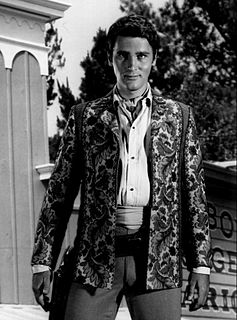A Quote by William S. Burroughs
For seven days she lay in bed looking sullenly at the ceiling as though resenting the death she had cultivated for so many years. Like some people who cannot vomit despite horrible nausea, she lay there unable to die, resisting death as she had resisted life, frozen with resentment of process and change.
Related Quotes
Mahlia... understood Doctor Mahfouz and his blind rush into the village. He wasn't trying to change them. He wasn't trying to save anyone. He was just trying to not be part of the sickness. Mahlia had thought he was stupid for walking straight into death, but now, as she lay against the pillar, she saw it differently. She thought she'd been surviving. She thought that she'd been fighting for herself. But all she'd done was create more killing, and in the end it had all led to this moment, where they bargained with a demon ... not for their lives, but for their souls
She had been so wicked that in all her life she had done only one good deed-given an onion to a beggar. So she went to hell. As she lay in torment she saw the onion, lowered down from heaven by an angel. She caught hold of it. He began to pull her up. The other damned saw what was happening and caught hold of it too. She was indignant and cried, "Let go-it's my onion," and as soon as she said, "my onion," the stalk broke and she fell back into the flames.
"What do you want out of life?" I asked, and I used to ask that all the time of girls. "I don't know," she said. "Just wait on tables and try to get along." She yawned. I put my hand over her mouth and told her not to yawn. I tried to tell her how excited I was about life and the things we could do together; saying that, and planning to leave Denver in two days. She turned away wearily. We lay on our backs, looking at the ceiling and wondering what God had wrought when He made life so sad.
I shall never get out of this! There are two of me now: This new absolutely white person and the old yellow one, And the white person is certainly the superior one. She doesn't need food, she is one of the real saints. At the beginning I hated her, she had no personality- She lay in bed with me like a dead body And I was scared, because she was shaped just the way I was only much whiter and unbreakable and with no complaints. I couldn't sleep for a week she was so cold.
She was looking into my eyes with that way she had of looking that made you wonder whether she really saw out of her own eyes. They would look on and on after every one else's eyes in the world would have stopped looking. She looked as though there were nothing on earth she would not look at like that, and really she was afraid of so many things.
In the classics section, she had picked up a copy of The Magic Mountain and recalled the summer between her junior and senior years of high school, when she read it, how she lay in bed hours after she should have gotten up, the sheet growing warmer against her skin as the sun rose higher in the sky, her mother poking her head in now and then to see if she'd gotten up yet, but never suggesting that she should: Eleanor didn't have many rules about child rearing, but one of them was this: Never interrupt reading.
Because of course she had known she must go. She always did the thing because in obedience lay the integrity that God asked of her. If anyone had asked her what she meant by integrity she would not have been able to tell them but she had seen it once like a picture in her mind, a root going down into the earth and drinking deeply there. No one was really alive without that root.
Her first reaction was one of hope, because his eyes were open and shining with a radiant light she had never seen there before. She prayed to God to give him at least a moment so that he would not go without knowing how much she had love him despite all their doubts, and she felt an irresistible longing to begin life with him over again so that they could say what they had left unsaid and do everything right that they had done badly in the past. But she had to give in to the intransigence of death. (Love in the Time of Cholera)
Later, she would remember these years, and realize with astonishment that she had, by fifteen, decided on most of the assumptions she would carry for the rest of her life: that people were essentially not evil, that perfection was death, that life was better than order and a little chaos good for the soul. Most important, this life was all. Unfortunately, she forgot these things, and had to remember them the hard way.
She had witnessed the world's most beautiful things, and allowed herself to grow old and unlovely. She had felt the heat of a leviathan's roar, and the warmth within a cat's paw. She had conversed with the wind and had wiped soldier's tears. She had made people see, she'd seen herself in the sea. Butterflies had landed on her wrists, she had planted trees. She had loved, and let love go. So she smiled.






































